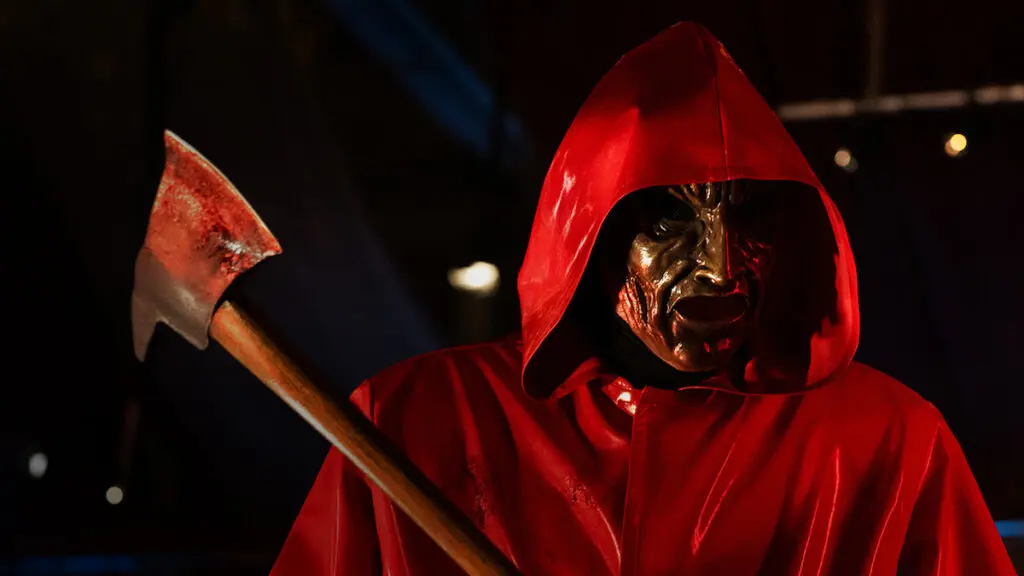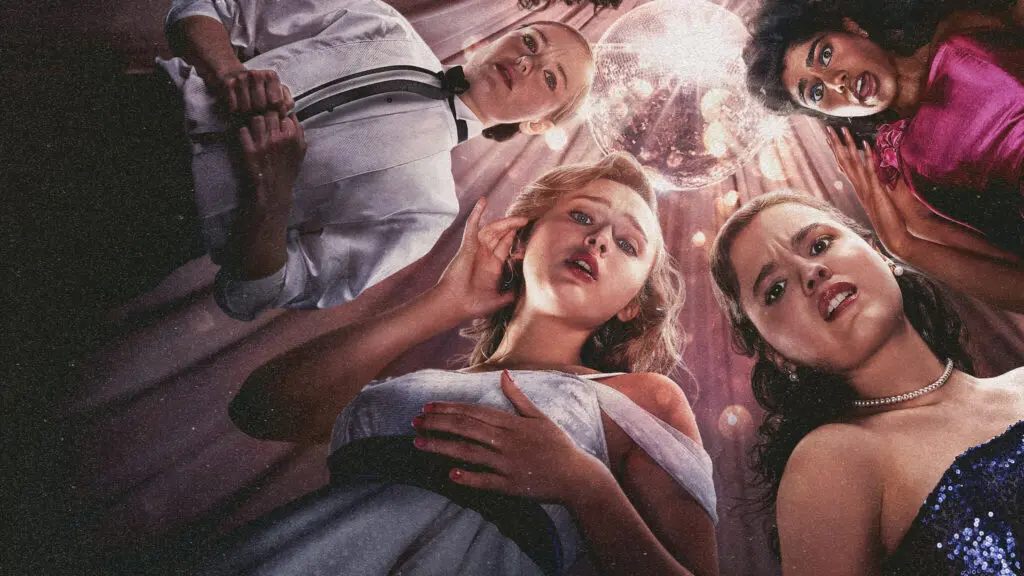
Hey, remember the Fear Street trilogy? What a surprising success that was for Netflix. At least partially a consequence of an unprecedented global health crisis shutting down theatres, writer-director Leigh Janiak’s trilogy, adapted from the RL Stine books, happened to arrive right on time for a streaming audience hankering after some throwback slashers of a kind that don’t typically get made these days. They were hits with audiences and critics alike and created a surprisingly interconnected mythology ranging from the 1660s to the nostalgia-drenched ‘70s and ‘90s, almost all of which is disappointingly ignored by the latest effort, Prom Queen.
Set in 1988, this standalone slasher has almost nothing to do with the first three movies, aside from brief references to “what happened in ‘78” and a mid-credits tease that’s a deep cut for fans but has no real bearing on anything else. It’s set in the same Shadyside setting but feels disappointingly stripped of all the interconnectedness that gave those movies texture, being content instead to operate solely as a contained story with the occasional grisly kill but none of the genre-blending alacrity.
And that’s a shame, partly because it feels cynical to leverage the name appeal on what is ultimately a marked step down. The reduction in quality is obvious everywhere. Even accounting for the budgetary differences between studio movies that ended up on a streamer and actual streaming movies, Prom Queen takes the laziest avenues possible to evoke the ‘80s, relying heavily on costuming and needle drops to create its vibe, in a way that always leaves the seams visible. The only nice aesthetic flourish is the very occasional use of VHS-style home video footage whenever the obligatory school reporter character points her cameraman in the right direction.

Plot-wise, things are simplistic in the extreme, almost as an overcompensation for abandoning the dense mythology of the previous titles. Shadyside High is about to crown its latest Prom Queen, and the candidates are limited almost exclusively to snooty mean girl Tiffany (Fina Strazza) and her loyal acolytes, known as “The Wolfpack”. But there are a couple of outsider contenders in the running, including a rebellious drug dealer played by Ariana Greenblatt (Ahsoka) and our final girl, Lori Granger (India Fowler, The Agency), who is somewhat notorious in the school on the back of a rumour that her mother stabbed her father to death. On the night of the prom, the candidates begin to be systematically and brutally murdered by a lame-looking killer in a red leather mackintosh.

The lame-looking killer in Fear Street: Prom Queen | Image via Netflix
You can tell that writer-director Matt Palmer and co-writer Donald McLeary are in a hurry here. Fear Street: Prom Queen is only 90 minutes long, which I usually wouldn’t mind, but the movie quickly introduces so many characters, all of whom need to be killed, that everything begins to happen on fast-forward. The social dynamics are skimmed through, and the kills, when they happen, often feel so hurried that they barely register. There is some effective gore, including a creative use of a circular saw and a brilliantly awful sight gag of a suddenly hands-free victim trying to turn a doorknob with spurting stumps, but the truly memorable kills are frustratingly few and far between.
And the killer! The outfit is so rubbish, and suggests a fundamental misunderstanding of how much mileage you can get out of a really cool-looking mask or signature weapon. There’s a distinct “that’ll do” quality to so much of Prom Queen that none of it is able to cohere; it’s the first draft of a movie edited down to a too-trim runtime for the purpose of cashing in on franchise curb appeal. Even the cast doesn’t do as much heavy lifting as it did in the first three movies, with thinner parts for the kids to play and the presence of a bigger name almost spoiling a plot point. Is Katherine Waterston (The Franchise, Slow Horses) really just here to play the overbearing mother of a mean girl?
I was stunned to be reminded of this, but Matt Palmer directed Calibre, an extraordinarily good thriller – also on Netflix – that proved he could do stripped-down, focused horror better than almost anyone. How the man behind that could be happy with Fear Street: Prom Queen is a real mystery, though I could probably hazard a guess.


